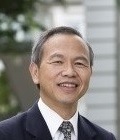Synopsis
Korea has been seeking to establish and develop fundamental IP and IT infrastructure to catch up with other leading countries. As the result of tireless efforts, Korea has the highest number of patent applications per unit of USD 100 billion GDP since 2004 and its ratio of resident applications to GDP is considerably higher than those of China and Japan, ranked second and third, respectively (WIPO, World Intellectual Property Indicators 2017). Korea also ranked as country with the 5th largest number of Patent Cooperation Treaty (‘PCT’) applications in 2017 (KIPO, 2017 Intellectual Property White Paper, 2018).
The Korean IP Office (KIPO) is the most important force in planning and performing IPR protection policies and strategies in Korea. The KIPO has established a promotional strategy (2018-2022) with a vision of “Leading the 4th Industrial Revolution with Intellectual Property.” To achieve this vision, the KIPO has determined four priority projects, namely 1) To Create Strong IP that will lead to Innovational Growth, 2) To Strengthen IP Protection to Support Fair Economy which is one of President Moon Jae-in’s three leading economic policies, 3) To Lay the Groundwork of IP to Prepare for Future, and 4) To Facilitate IP Commercialization for high-quality Jobs Creation.
The speaker address the KIPO’s promotional strategy and the four priority projects briefly. The speaker will then mainly discuss the KIPO’s IPR protection activities and strategies including Industrial Property Right Dispute Mediation Committee, Special Judicial Police for Trademark, IP Online Monitoring System (IPOMS), Counterfeit Goods Reporting Center, Korea’s IP-DESKs in 8 foreign countries, among others, which relate to the KIPO’s second priority project mentioned above.
Speaker

Keon-Hyung Ahn is currently an Assistant Professor and Dean of International Commerce at Daejeon University, Daejeon, Korea. He used to work at the Korean Commercial Arbitration Board (KCAB) as a Director for around 15 years. He was responsible for organizing seminars as well as training workshops, and collaborating with institutions from around the world to promote and develop the arbitration market in Korea.
Assistant Professor Ahn is a Member of the List of Arbitrators maintained by the WIPO Arbitration and Mediation Center (AMC) since 2018 and he also has been participating in WIPO Education Programs. Among others, he delivered a lecture on IP & ADR at the WIPO-KIPO-JRTI Continuing Education Course for 21 judges from 17 countries on April 18, 2019.
Between 2007 and 2008, Assistant Professor Ahn was an overseas researcher at the ICC International Court of Arbitration (Paris), the Grain and Feed Trade Association (London), and the Cairo Regional Centre for International Commercial Arbitration (Egypt). He also served as Deputy Secretary General of the APRAG from 2009 to 2010.
Assistant Professor Ahn obtained his Ph.D degree in International Commerce and Law from SungKyunKwan University, Seoul in 2011. He has published numerous articles about international arbitration and ADR including “Euro-Korean Perspectives on the Use of Arbitration and ADR Mechanisms for Solving Intellectual Property Disputes” which was published by Arbitration International Vol. 30 Issue 1 (Oxford: Oxford University Press, 2014) co-authored with two IP Law Assistant Professors.
Chair

Kung-Chung LIU holds an LL.B. and LL.M. from National Taiwan University and a Doctorate from the Ludwig Maximilian Universitaet (University of Munich). He was a Research Fellow at Academia Sinica, Taiwan until 2017. In 2003, he was a Visiting Professor at the Faculty of Law of the National University of Singapore and a Visiting Senior Research Fellow for the IP Academy of Singapore. Professor Liu has served as one of the founding Commissioners of the National Communications Commission in Taiwan between 2006 and 2007. In 2014-15, he was a Visiting Professor at the School of Law, Singapore Management University, and the Founding Director of the Applied Research Centre for Intellectual Assets and the Law in Asia (ARCIALA). In addition, he has been co-appointed Professor at the Renmin University, China (2017), and the Graduate Institute of Technology, Innovation & Intellectual Property Management, National Chengchi University, Taiwan (since 2010).
This event is by-invitation only.
Last updated on 10 Jul 2019 .